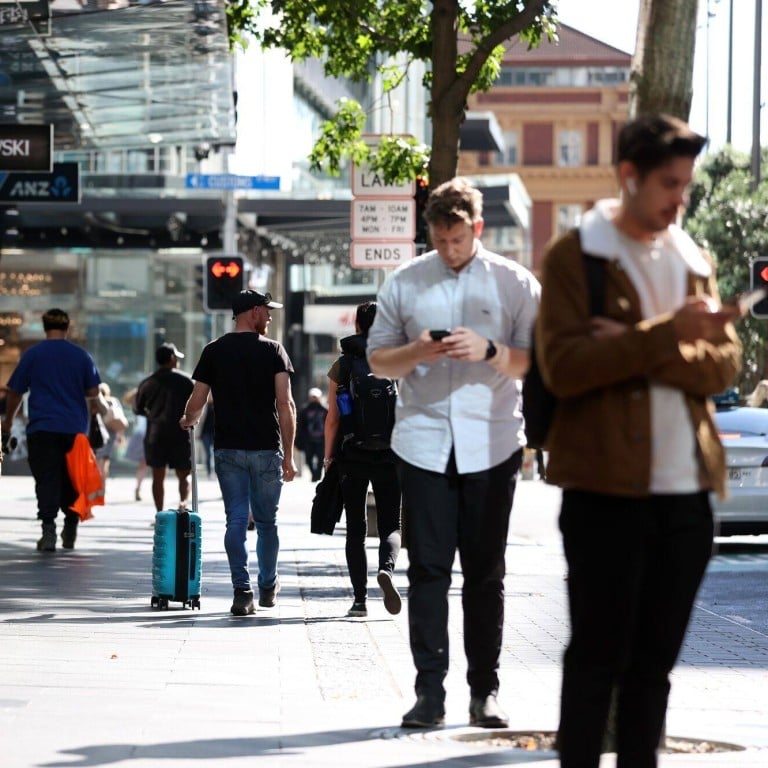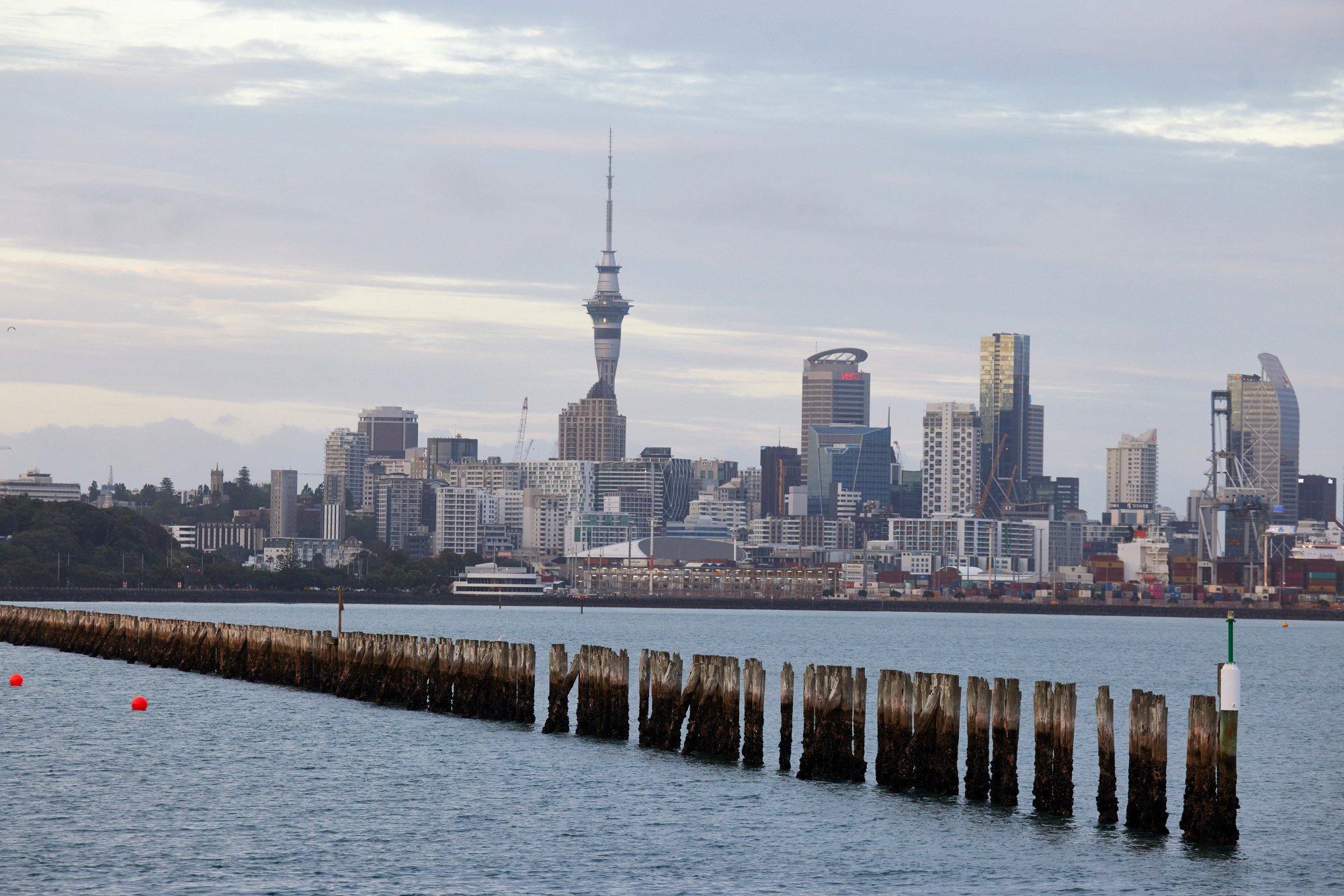
New Zealand’s state-sector job cuts cast more gloom on recession-hit economy
- The government’s ongoing public-sector job cuts have resulted in the worst-ever employment market, recruiters say
- Amid a technical recession, New Zealand’s unemployment rate could rise to 5 per cent by the end of the year, according to economists
When communication specialist Katie Howe moved to Wellington from Canberra two years ago, she was excited by the prospect of expanding her business in a new market.
How will New Zealand’s economic slump play out for jobs – and the election?
The slashing frenzy reached a fever pitch in recent weeks, so much so that the local media has started keeping a running tally of job cuts – now about 2,000 across various ministries, with more to come.
These moves have put workers on edge and added more pressure to falling job vacancies. While a cooler job market could arguably slow down inflation, it is rattling an already jittery economy, experts say. New Zealand entered a technical recession in the final quarter of last year.
Howe does not work in the public sector, but still says the job cuts are sending ripples through private industry.
“After Covid, one recession, two recessions, another graduating year of students entering the employment market, after a government contracting freeze last September, it’s just too many compacted issues all at once,” she said.

Worst-ever job market
New Zealand’s Finance Minister Nicola Willis, who is overseeing the cuts, has said that workers will find other jobs.
“But there are no jobs,” Howe said. “Everyone applying is overqualified and if they get the role they’re taking 20 per cent salary cuts. For your average middle manager, that’s about NZ$20,000 (US$12,100) less per annum.”
According to a March update by online job-search platform Seek, vacancies across New Zealand have fallen nearly 30 per cent over the past year. In Wellington, they have plummeted nearly 40 per cent.
Seek New Zealand’s Country Manager Rob Clark said in February that the confirmation of a recession had dampened hiring interests – and conditions could still worsen.
That being said, the unemployment rate is – at 4 per cent – is still at one of the lowest levels for a decade. But economists have predicted it could hit 5 per cent by the end of the year.

The current job market in New Zealand is the worst ever, eclipsing downturns during the pandemic and the global financial crisis of 2007-08, according to recruitment veteran Jane Reddiex.
“There has always been a quiet period after general elections but not to this degree or for this long. There are a lot of high calibre candidates in the market for fewer jobs,” said the general manager at The Johnson Group and Alpha Recruitment.
The difference this time – and particularly for Wellington, the worst-hit jobs market – is that the government has both cut spending and simultaneously cracked down on the use of contract workers, she said.
Migrating to New Zealand just got harder for workers who can’t speak English
Bridget Clarke, a senior director at recruitment firm Robert Walters in Wellington, said white-collar contractors who previously never had a problem finding work were struggling.
Across industries, many skilled jobseekers were settling for jobs for which they were overqualified, according to Clarke, reflecting Howe’s observations.
Online forums are awash with complaints about poor employment prospects, with some Wellington workers saying they’re thinking of moving overseas to “start afresh”.

“The market remains riddled with uncertainty, compelling candidates to explore alternative options. For many, it is preferable to be proactive in making decisions and assuming control before facing the possibility of being laid off,” Clarke said.
A fresh brain drain will also result in fewer workers driving up wages, she warns. “Consequently, the government’s goals of achieving savings could be swiftly undermined.”
However, moving overseas might not be the silver bullet some workers seem to think it is, according to Urvashi Yadav, a senior consultant at New Zealand economics research firm BERL, as employment is falling globally.
Workers remaining in the country might also cost the government, however, especially if they lose their jobs and have to make use of unemployment benefits supplied by the state, she said.

‘Necessary’ job cuts
The government has said that the job cuts are necessary as part of a pre-election commitment to cut down on waste.
About 16,000 new jobs were created by the former government over its six years in office, with the public-sector workforce growing by more than 30 per cent during that period.
Eric Crampton, chief economist at The New Zealand Initiative think tank, said public-sector spending and employment grew substantially from 2020 and the government was in a “substantial structural deficit”, spending more than it earned, mainly from tax revenue.
“The most recent figures had New Zealand’s structural deficit as second worst among developed economies, with only the US in worse shape. Fiscal consolidation is absolutely necessary, and reductions in the size of the public sector will be part of it,” Crampton said.
In Australia and New Zealand, restaurants struggle as downturn blues bite
Creating too many jobs through rapid fiscal spending can result in an overheated labour market, according to think tank’s analyses. It also exacerbates inefficiency and reduces productivity, Crampton said.
Grant Duncan, a New Zealand-based political theory and public policy expert, said the government seemed to be pursuing austerity as it believed the benefits of a bloated public service were not worth the cost. Moreover, many New Zealanders agreed with the government that “there were too many bureaucrats”, he said.
Will the recession worsen?
The full impact of job cuts on the economy will not be known until they are completed, likely in June, according to economic researcher Yadav.
“But the public sector does make up quite a big proportion of the Wellington economy … and obviously, you have all the other supporting industries as well. So it is not an insignificant part of the New Zealand economy,” she said.
“Firms like PwC, for example, have announced that they might cut 50 jobs in the government advisory department. So there’s going to be a ripple effect.”
The New Zealand Institute of Economic Research’s latest survey of business opinion revealed poor business sentiments among a quarter of those surveyed. The think tank’s principal economist Christina Leung said that, alongside higher interest rates, the Wellington job cuts had hurt business confidence.
“This uncertainty is driving caution among businesses when it comes to hiring and investment,” she said.

